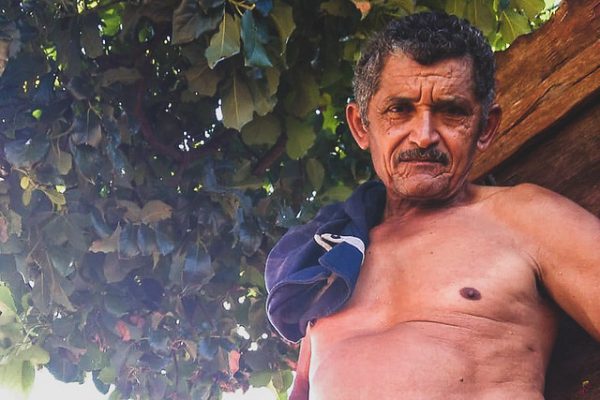On the morning of 18 July 2019, human rights defender Luis Ferreira da Costa was killed by a pickup driver while he protested for access to water in Valinhos, Sao Paulo. Four hundred residents of the Marielle Vive Camp participated in the protest to demand municipal authorities to grant access to water, health and education to their community, and distributed food and pamphlets to cars who passed by.
The Marielle Vive Camp was established by 700 families of the Movement of Landless Rural Workers in April 2018, on the margins of the Jequitiba road, at the Fazenda Eldorado Empreendimentos Ltda, an unproductive farm used for speculation. Currently, there are more than 1000 families living and working at the Camp, which also comprises an alphabetisation school for adults, women’s rights groups and male and female soccer teams.
The Movement of Landless Rural Workers (MST) is the largest social movement pressuring for the agrarian reform in Brazil, to fight the country’s historically high land concentration and the human rights violations associated with it. The camps and settlements organised by rural workers and human rights defenders are characterised by sustainable family agriculture and commercialisation of produce surplus, and they are often responsible for the supply of grains and vegetables in surrounding cities.
The Brazilian agribusiness model has promoted inequalities, human rights violations, as well as adverse environmental impacts, putting biodiversity at risk in favour of economic growth. This increasingly impedes the efforts and resistance of those creating alternative forms of living and working on the land – such as the ones proposed by MST, which have been recognised all over the continent. MST is present in 24 states in the five regions of the country. Over all, there are about 350,000 families who have secured land through the struggle and organisation of MST members.
During the protest in Valinhos on 18 July 2019, a man driving a Mitsubishi L200 pickup truck broke through a road blockage driving against traffic at high speed into the protesters, killing 72 year-old Luis Ferreira da Costa and injuring a journalist and three other individuals. Human rights defender Luis Ferreira da Costa died on his way to a health assistance unit. After the attack, the driver showed the protesters that he was carrying a fire weapon, and ran away. Witnesses testified that the driver and passenger affirmed that they would “run over” the protesters. Hours later, the Civil Police was able to identify and arrest the driver.
On 20 July 2019, MST members gathered in Valinhos in a protest against rural violence and the smear campaign against the movement. They sought to draw attention to the growing intimidation and criminalisation against popular movements in Brazil, which are being translated into public policies.
The president of the Sao Paulo state level Council for Human Rights (Condepe) claimed that the investigation following the attack should take into account the context of hate speech and institutional violence against social movements, and that this crime is “the expression of a death policy”.
Since President Jair Bolsonaro’s campaign and subsequent election in 2018, he has made a series of public statements against the Movement of Landless Rural Workers, including that they were terrorists and should be “treated with bullets”. He has also been responsible for promoting policies that incite violence and impunity, such as the relaxation of the country’s firearms laws and the dismantling of human rights and agrarian reform institutions.
Such measures and statements legitimise those who act violently against members of MST, as the attack on 18 July demonstrates.
Source: Front Line Defenders
